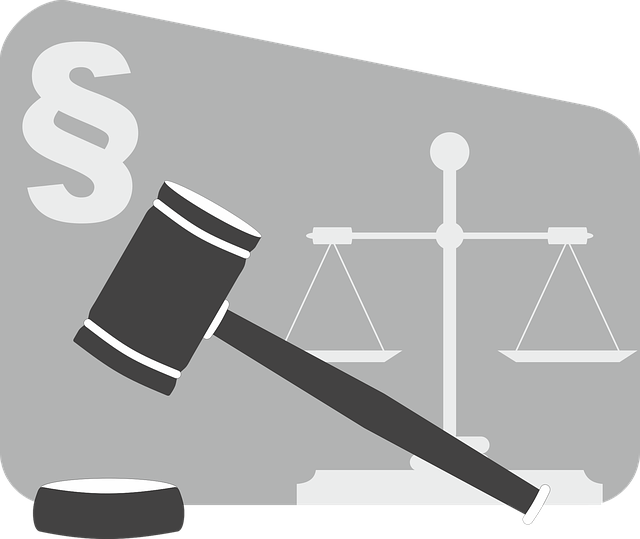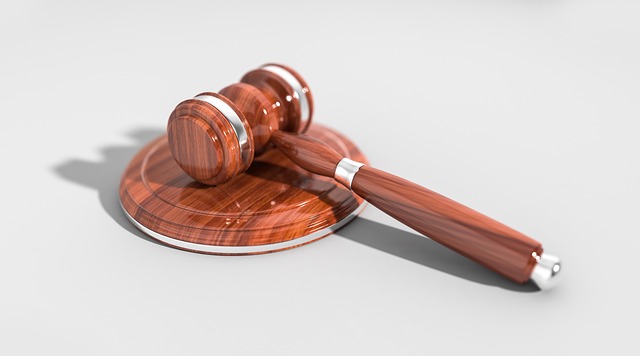Regulatory fraud laws protect consumers from deception in various sectors. Examples of successful consumer protection lawsuits demonstrate their effectiveness in securing compensation and setting precedents. These laws target false claims, misleading sales tactics, and non-compliance, holding wrongdoers accountable with fines, imprisonment, and market transparency improvements. Successful cases strengthen consumer trust and serve as models for future legal actions against deceptive practices.
Regulatory fraud laws are designed to protect consumers from deceptive practices, ensuring fair and transparent business conduct. This comprehensive guide explores key aspects of these laws, beginning with defining and understanding their scope. We delve into common consumer fraud cases, providing real-world scenarios to illustrate various tactics. Learn effective legal strategies for building a strong case and discover inspiring examples of successful consumer protection lawsuits that have held businesses accountable.
- Understanding Regulatory Fraud Laws: Key Definitions & Scope
- Common Types of Consumer Fraud Cases: Real-World Scenarios
- Building a Strong Case: Evidence & Legal Strategies
- Examples: Notable Consumer Protection Lawsuits & Outcomes
- Prevention & Enforcement: Role of Regulators & Penalities
Understanding Regulatory Fraud Laws: Key Definitions & Scope

Regulatory Fraud Laws are a cornerstone of consumer protection, designed to safeguard individuals from deceptive practices within various industries. At their core, these laws define fraud as any deliberate act or omission intended to mislead or deceive consumers, leading to economic harm. Key definitions include terms like ‘material misrepresentation’, ‘omission’, and ‘unfair methods’, which collectively encompass a wide range of fraudulent behaviors.
The scope of these laws is extensive, covering various sectors from financial services to healthcare, with specific regulations tailored to each industry’s unique characteristics. Consumer Protection Lawsuits have proven effective in holding wrongdoers accountable, as evidenced by numerous successful cases. These settlements often involve substantial compensation for victims, setting a precedent for future cases and demonstrating the significant role of both the legal system and the philanthropic and political communities in ensuring fair practices throughout all stages of the investigative and enforcement process. Furthermore, an unprecedented track record of successful prosecutions underscores the importance and impact of these laws in protecting consumers from fraudulent activities.
Common Types of Consumer Fraud Cases: Real-World Scenarios

Consumer fraud cases span a wide range of deceptive practices, from misleading advertising to identity theft. One common scenario involves companies making false claims about their products’ quality or performance. For instance, a manufacturer might advertise a “miracle” weight-loss pill with no scientific backing, luring consumers with unrealistic promises. Another prevalent case is the use of deceptive sales tactics, such as high-pressure sales pitches or hidden fees, which can lead to consumers paying far more than intended for a product or service.
Examples of successful consumer protection lawsuits highlight the power of these laws in holding wrongdoers accountable. In many instances, individuals and groups have achieved unprecedented track records in winning challenging defense verdicts and securing complete dismissal of all charges. These cases not only provide financial compensation to victims but also serve as deterrents, ensuring that businesses adhere to ethical practices. By examining real-world scenarios, it becomes evident that consumer fraud laws are essential tools for protecting individuals from deceptive and harmful business practices.
Building a Strong Case: Evidence & Legal Strategies

Building a strong case under regulatory fraud laws requires robust evidence and strategic legal arguments. When investigating potential violations, authorities scrutinize documents, financial records, and witness statements to gather compelling proof. For his clients, this meticulous process involves preserving and presenting irrefutable documentation that demonstrates intentional deception or failure to comply with regulations. Legal strategies often include expert witnesses who can explain complex regulatory issues to the court, enhancing the case’s credibility.
Successful consumer protection lawsuits provide valuable precedents, showcasing effective tactics for holding perpetrators accountable. Examples of such cases demonstrate how thorough investigations, strong evidence, and well-crafted legal arguments can lead to complete dismissal of all charges at any stage of the investigative and enforcement process. These victories not only protect consumers but also set a precedent for future cases, reinforcing the integrity of regulatory fraud laws.
Examples: Notable Consumer Protection Lawsuits & Outcomes

In recent years, several high-profile examples of successful consumer protection lawsuits have illuminated the power of regulatory fraud laws in holding corporations accountable. One notable case involves a leading tech company accused of misrepresenting data privacy practices, resulting in a multi-million dollar settlement and substantial changes to their policies. This white collar defense lawsuit not only compensated affected consumers but also served as a warning to other companies about the risks of deceptive marketing strategies.
Another example highlights the impact of consumer advocacy groups and philanthropic and political communities working together. In a high-stakes case, a popular retailer was found guilty of systematic price manipulation, leading to widespread consumer confusion. The outcome included substantial penalties, improved transparency measures, and a renewed focus on corporate ethics across the industry. These successful lawsuits have set precedents for future legal battles, emphasizing the importance of regulatory fraud laws in protecting consumers from manipulative business practices.
Prevention & Enforcement: Role of Regulators & Penalities

Regulatory fraud laws are crucial in preventing and punishing unethical practices that harm consumers. Regulators play a pivotal role in enforcing these laws by conducting thorough investigations, examining financial records, and interviewing stakeholders. They also collaborate with law enforcement agencies to ensure the effective prosecution of offenders. One of the primary objectives is to deter potential violators through stringent penalties, which can include substantial fines, imprisonment, or both. These measures create a disincentive for businesses to engage in fraudulent activities, thereby safeguarding consumers.
Examples of successful consumer protection lawsuits highlight the impact of these laws. Many cases have resulted in unprecedented track records of compensation for victims, setting precedents across the country. By holding offenders accountable, regulatory bodies send a clear message that fraud will not be tolerated. A robust system of prevention and enforcement is essential to maintain market integrity and restore trust among consumers, ensuring they are protected from malicious practices within the legal framework.
Regulatory fraud laws are a vital shield for consumers, protecting them from deceptive practices. By understanding key definitions, common types of fraud, and effective legal strategies, we can ensure a more transparent market. The examples of successful consumer protection lawsuits highlighted throughout this article serve as a reminder of the power these laws hold. Regulators play a crucial role in prevention and enforcement, meting out penalties to deter malicious actors. Ultimately, staying informed and proactive is key to safeguarding consumers in today’s complex business landscape.






